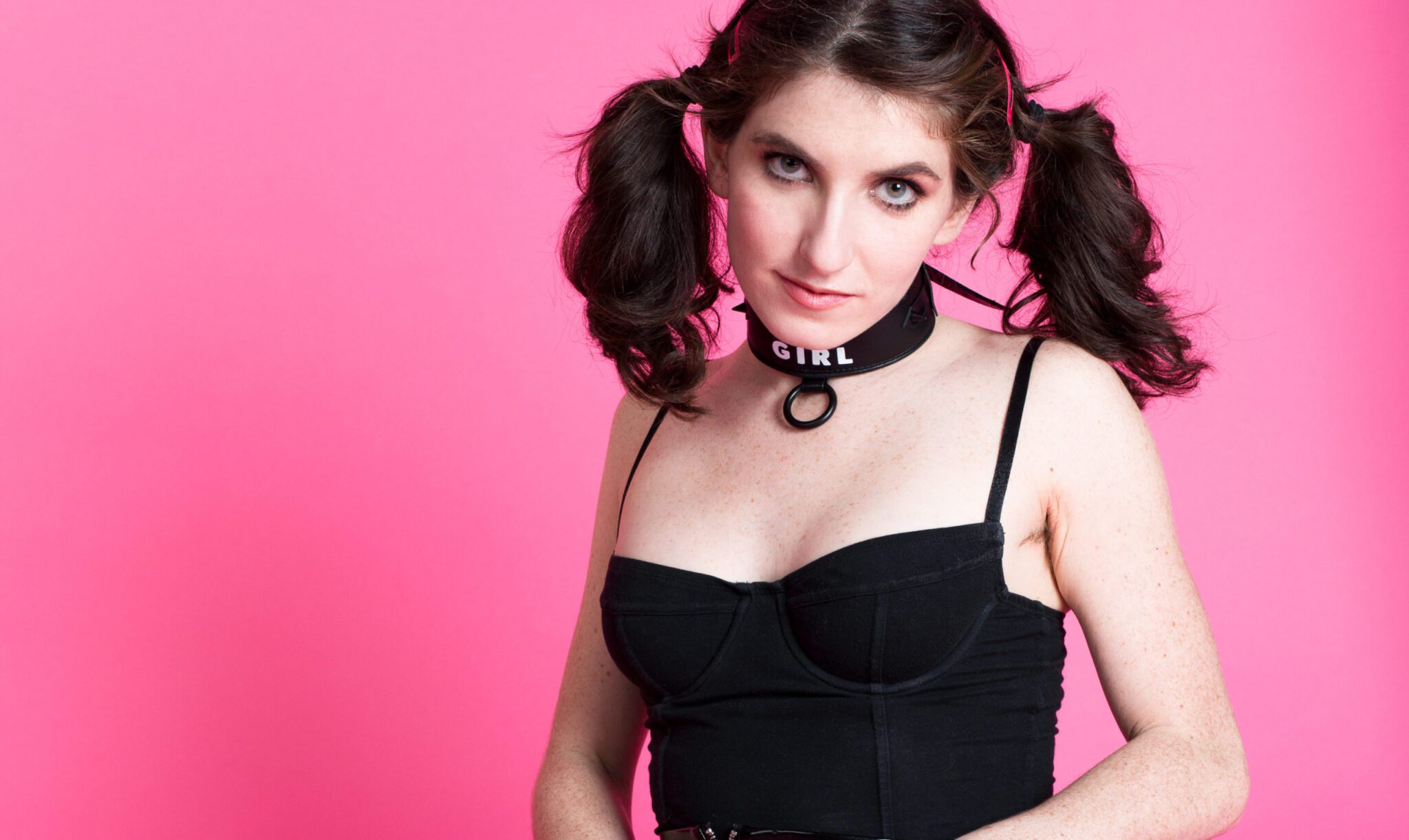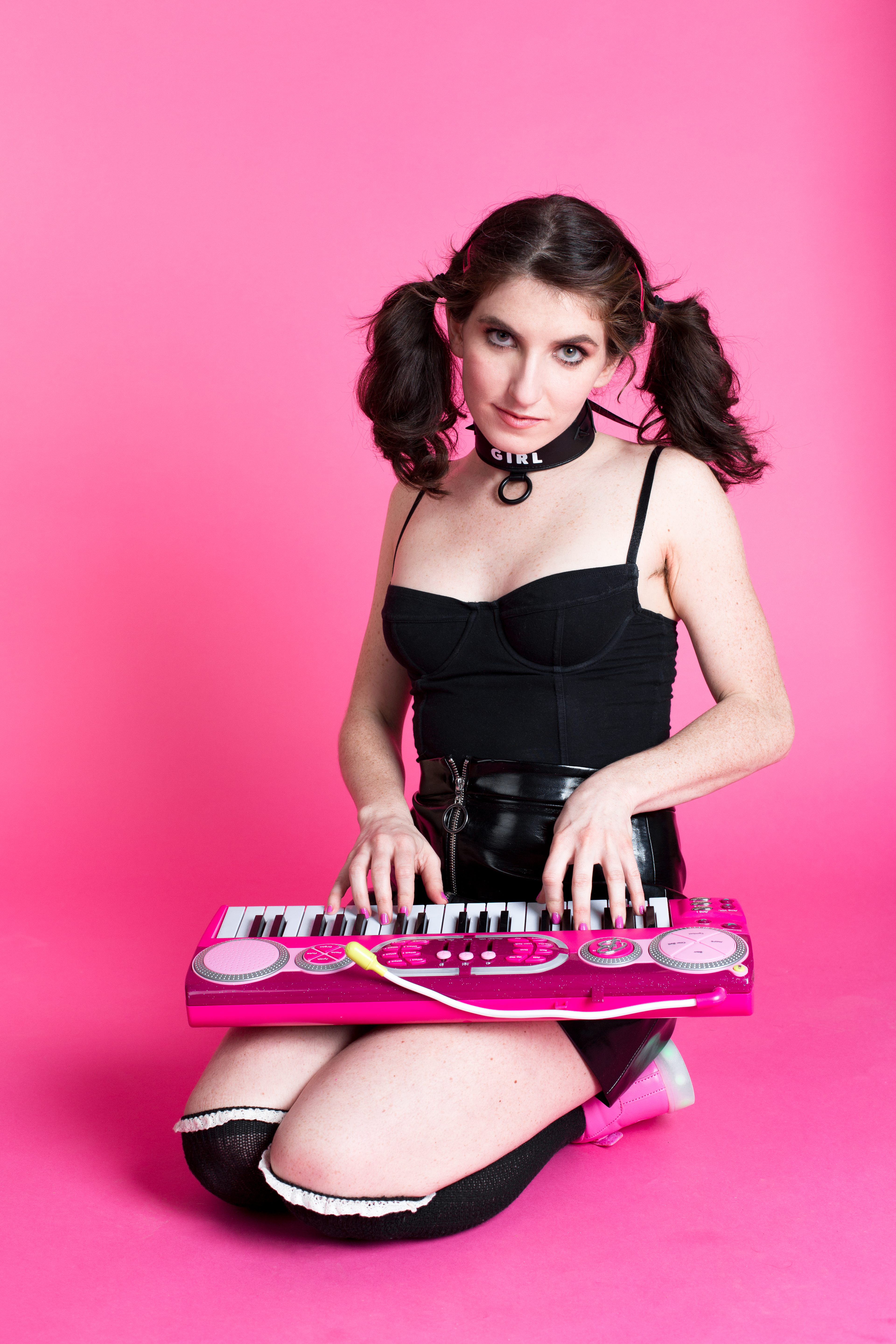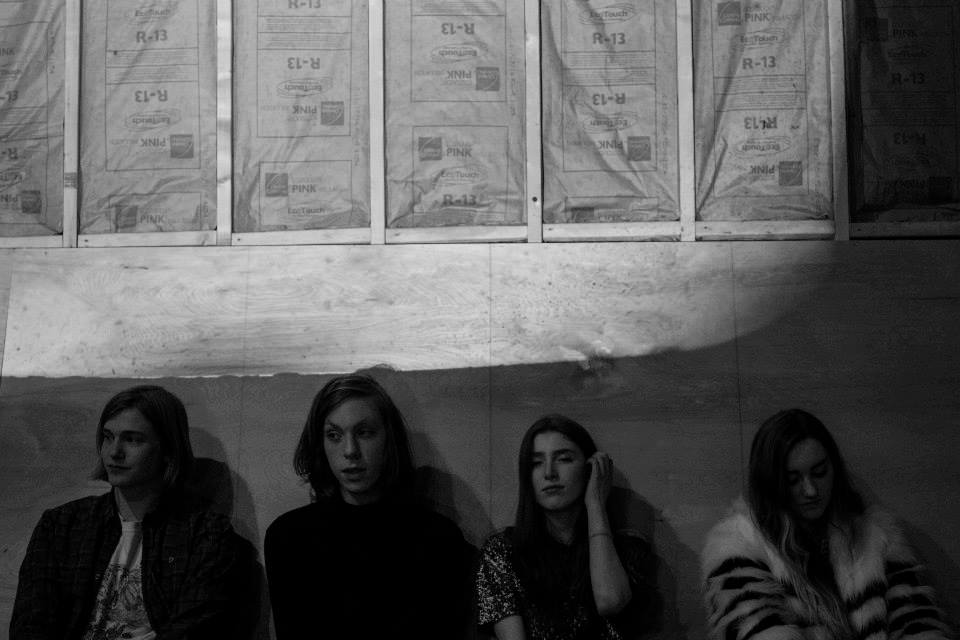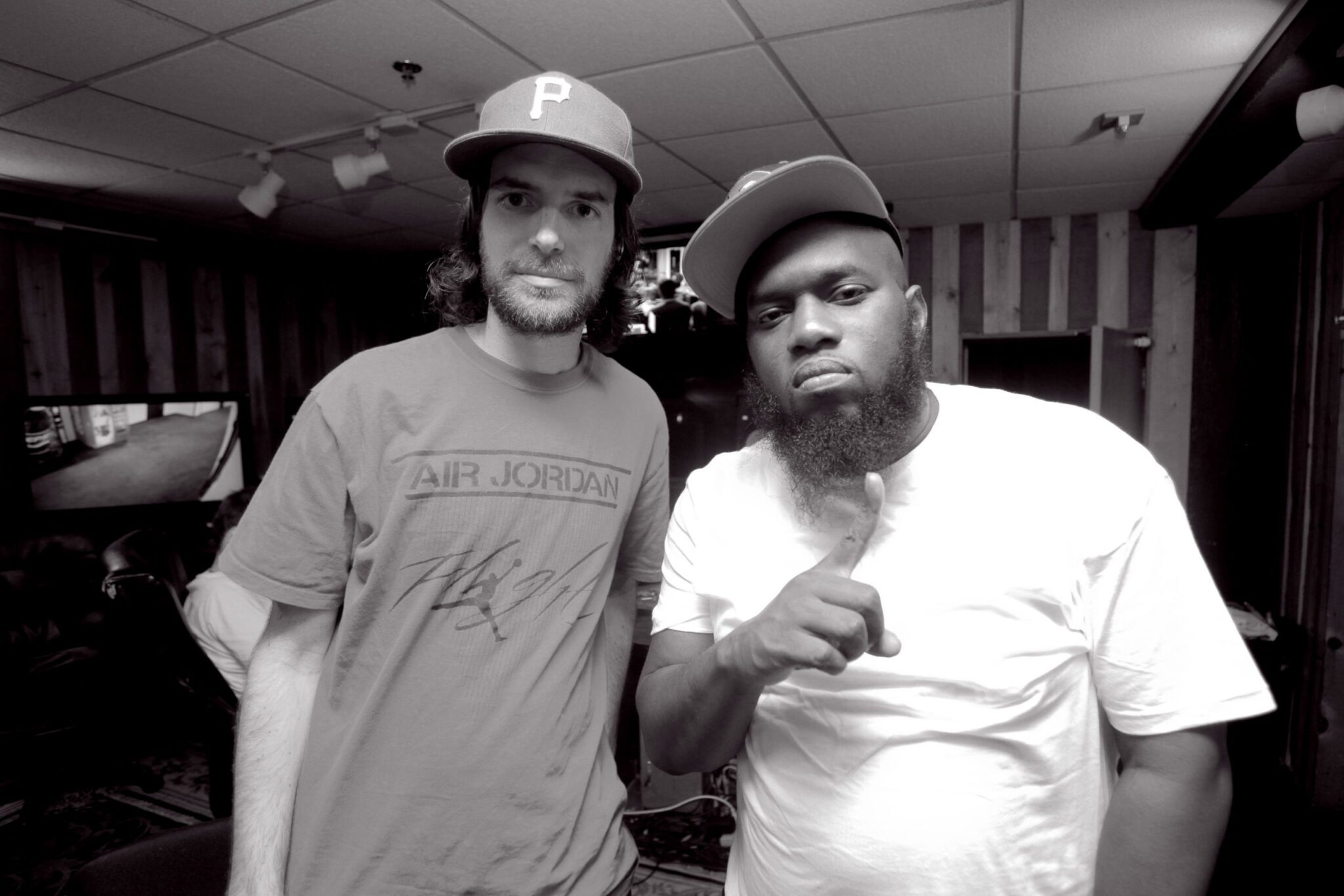
 Witches talk back nowadays. Raechel Rosen, aka Mima Good, walks an interesting tightrope thematically; her music weaves together the historical oppression of women with music that more readily brings to mind a candlelit boudoir. It’s the playful banter between hi-concept undertones and sexuality that make her new EP Good Girl stand out.
Witches talk back nowadays. Raechel Rosen, aka Mima Good, walks an interesting tightrope thematically; her music weaves together the historical oppression of women with music that more readily brings to mind a candlelit boudoir. It’s the playful banter between hi-concept undertones and sexuality that make her new EP Good Girl stand out.
Raechel says her first single “Bad For Me” is about “attachment to trauma, how traumatic experiences can be so formative to our identities that we don’t want to let them go. It starts with… reminiscing about what it was like to be a young girl, before puberty and sexualization and boys, when I didn’t have to care. I’m mourning the girl I was before patriarchy got ahold of me, in a sense. Once the chorus kicks in, I am fully in its grasp, in a self-destructive trance.”
We talked with Raechel about how feminism influences her work, what the word “witchy” means to her, and how performance art seeps into Mima Good.
Give her single “Bad For Me” a listen below:
AF: Give us a little background on you: Where are you from? What kind of music were you dancing around to as a kid?
RR: I grew up in NYC and was obsessed with music and performing as soon as I could move. My parents raised me on classic rock and disco, my dad spoon-feeding me Springsteen in the crib and my mom blasting Abba, cheering “C’mon Raechy” until I’d begin to bob. The camera was pretty much always rolling; they got a full reality show season’s worth of baby footage.
AF: Where did the name Mima Good come from?
RR: A feminist theory class in college (lol). We were reading Caliban and the Witch by Silvia Federici and it got me obsessed with the strategies of patriarchy from feudalism to capitalism, and of course witch hunts throughout time, specifically those in Salem in the 1690s. Most of those women burned at the stake were tried as witches based on accusations of being too political or too sexual, suspected queerness, “turning the eye of too many a married man” (literally just too hot); any woman who did not fit within the strict bounds of Puritan society could be murdered for suspected witchcraft. So I combined the names of two of my favorite “witches” and began this project as tribute.
AF: Your music is direct, sensual, powerful. It’s been called “witchy”, which is one of my favorite female musician descriptors (Grimes being one of your tribe). Do you categorize the music you make?
RR: I have a hard time describing my own music. I think its really exciting how much music is being made right now and how everything is fusing together. I kinda feel like we are moving past genre. I don’t know how to compare myself to others but some of my biggest inspirations are Amy Winehouse, Angel Olsen, Nina Simone, FKA Twigs, Talking Heads… I could go on for a very long time.
AF: I love the retro vibe on “My Demon.” Tell us about your writing process. Are the lyrics the frontrunner or do you start with a beat/rhythm in mind?
RR: It really depends on the song. “My Demon” literally came to me in a dream about my abuser – we were both sprinting toward each other ready to fight. Right before I reached him I woke with the first verse and chorus in my head. Most songwriters I know experience this once in a blue moon and it’s really the coolest feeling. I really felt like I didn’t write the song, so much so that I couldn’t finish it until it came to me in a similar manner on the 6 train. With other songs I usually start with the lyrics & melody, developing the chords and beat afterwards.
AF: A trademark move of yours is slowly peeling a banana onstage and circumcising it with a pair of scissors. It reminds me of watching Teri Gender Bender perform in Le Butcherettes: a kind of visceral representation of the lyrics themselves. Is this end of show act the only time you bend into performance art, or is crossing that line a consistent interest of yours?
RR: Haha yea, I was doing that for a bit last fall. I was thinking a lot about misandry at that time, both ironically and genuinely. I do love playing around with boundaries and pushing audiences’ comfort zones. My performance style is constantly changing based on how extroverted I’m feeling and what’s going on in my spiritual practice. Lately I’ve been focusing inward and on delivering my songs as honestly and beautifully as possible.
AF: In 2016, you co-hosted The Witch Ball in Brooklyn, “an inclusive, intersectional feminist party.” What role does feminism play in your work?
RR: I would really love to witness the destruction of patriarchy and all systems of domination in my lifetime, or at least for future generations to experience less gender-based violence. My EP has been an attempt at expressing my journey through a particularly formative trauma, how it held me frozen for years after and what it takes to truly get free.
AF: What artists do you currently have in rotation?
RR: Alice Coltrane, Girlpool, Valerie June, Hole, and ‘Everytime’ by Britney Spears.
AF: When can we see you live?
RR: Tuesday, April 24 at The Good Girl Party at Elsewhere in Bushwick! Doors are at 7:30, I go on at 10. I am bringing up some new live players, drums, bass, a 16-year-old trumpet player and my little sister on vocals for the last song. I am so excited for this show; it’s gonna be a meaningful one for me.
Do you live in NYC? AudioFemme x PopGun presents The Good Girl Party TOMORROW NIGHT at Elsewhere in Brooklyn.Get tickets to see Mima Good’s release show HERE!




